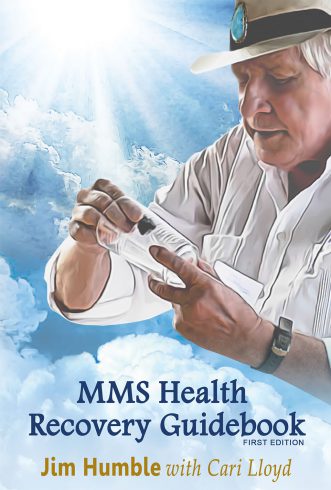 Water quantity
Water quantity
- CLO2
-
 Topic Author
Topic Author
- Offline
- Administrator
-

Less
More
16 Jun 2025 10:49 - 16 Jun 2025 10:51 #86858
by CLO2
Water quantity was created by CLO2
Hello,
I find the amount of 120ml of water to drink a bit excessive, 8 times per day, and would like to know if it's ok to lower the water volume to let's say 60/90ml while keeping the same amounts of drops of MMS1? Yes, you can use less dilution water.
Also, I remember reading that it is best to store MMS (22,4% sodium chlorite) in a fridge:- Is it also best to store HCL and for DMSO in the fridge? It is a good idea to store SCS in a fridge to prolong its life. HCL does not need to be stored in a fridge. DMSO, if undiluted, freezes at about 66F, so don't store it in a fridge.
In your other post you said 1 drop of DMSO burned your skin. I suggest to dilute DMSO to at least 70% DMSO and 30% water, or less. For ingestion, 100% (undiluted) DMSO is normally used.
Thank you
Last edit: 16 Jun 2025 10:51 by CLO2.
The following user(s) said Thank You: Leo3387
Please Log in or Create an account to join the conversation.
- CLO2
-
 Topic Author
Topic Author
- Offline
- Administrator
-

17 Jun 2025 06:17 - 17 Jun 2025 13:45 #86867
by CLO2
Replied by CLO2 on topic Water quantity
Wonderful to read your answers, thank you 🙏. Glad I could help.
I will try diluting DMSO. The context of my question is that I am applying the MMS1 spray (25 drops + 30ml distilled water) on genital herpes and it doesn't sting or burn. Then straight away I add a drop or two of DMSO and it will burn and sting in the first minutes before being itchy for hours (I just spent the whole night itching). Visually it is red.
Does it mean it is killing the herpes and I need to keep applying the DMSO (but diluted this time) on top of MMS1? It's definitely doing something to the herpes but the itchiness is very bothersome for hours, physically and mentally.
In addition to diluting DMSO to 70%, should I add aloe vera on top of DMSO? I think adding some aloe vera is okay to do, because you can buy DMSO with aloe vera added .
I have tried spraying MMS1 alone without DMSO and it doesn't itch much but it doesn't seem to "kill" it as intensely. Genital herpes is very difficult to eliminate. You may read testimonials written by people who have genital herpes who say that their genital herpes is cured, but a few months or even years later it comes back. If you can control genital herpes with CLO2, that may be all you can do.
The following is from an internet search question:
"Genital herpes is a sexually transmitted infection (STI) caused by the herpes simplex virus (HSV), which can lead to sores on the genital or rectal area, buttocks, and thighs.6 It can be transmitted through vaginal, anal, or oral sex with an infected person, and the virus can spread even when sores are not present.6
There are two types of HSV: HSV-1, which typically causes oral herpes, and HSV-2, which is more commonly associated with genital herpes.8 However, HSV-1 can also cause genital herpes, and HSV-2 can cause oral herpes.8 Most people with genital herpes have no symptoms or very mild symptoms, and some may mistake them for other skin conditions.6 When symptoms do occur, they often include tingling, burning, or itching sensations, followed by the appearance of painful blisters or sores.4
The first outbreak is usually the most severe, and subsequent outbreaks tend to be less severe and shorter in duration.8 However, some individuals may experience frequent recurrences, and the virus can remain dormant in the body for long periods.8 There is no cure for genital herpes, but antiviral medications can help manage outbreaks, reduce symptoms, and decrease the risk of transmission to others.6
For pregnant individuals with genital herpes, treatment with antiviral medications from 36 weeks gestation is recommended to reduce the risk of neonatal transmission.1 In some cases, a cesarean section may be advised if there is an active outbreak at the time of delivery.8 Open communication with healthcare providers and sexual partners is essential for managing the condition and preventing its spread.4
AI-generated answer. Please verify critical facts."
Last edit: 17 Jun 2025 13:45 by CLO2.
Please Log in or Create an account to join the conversation.
Time to create page: 0.316 seconds

